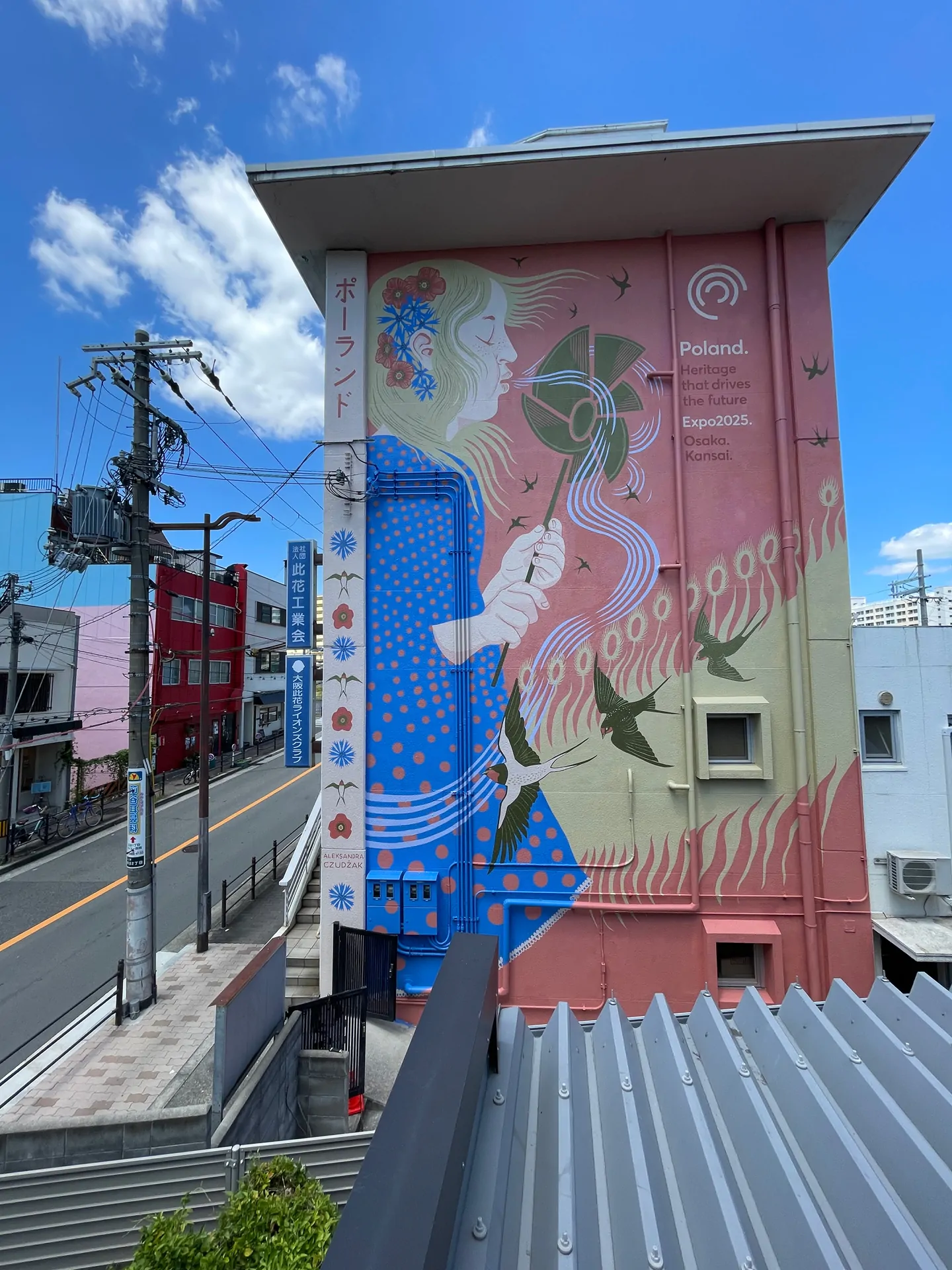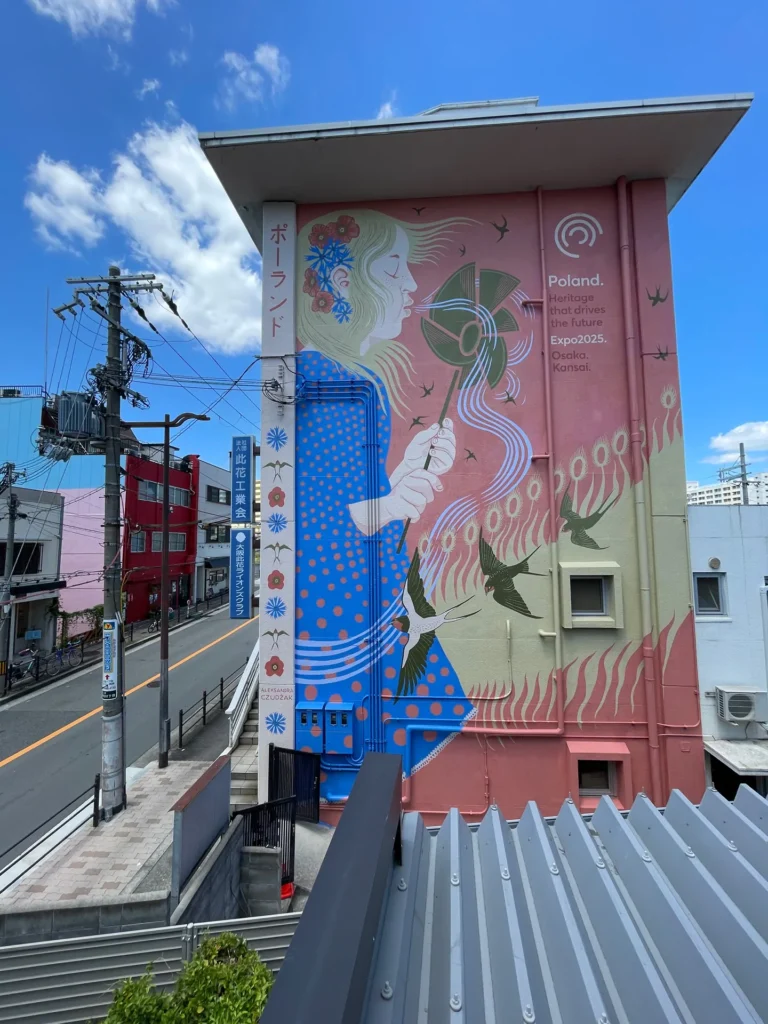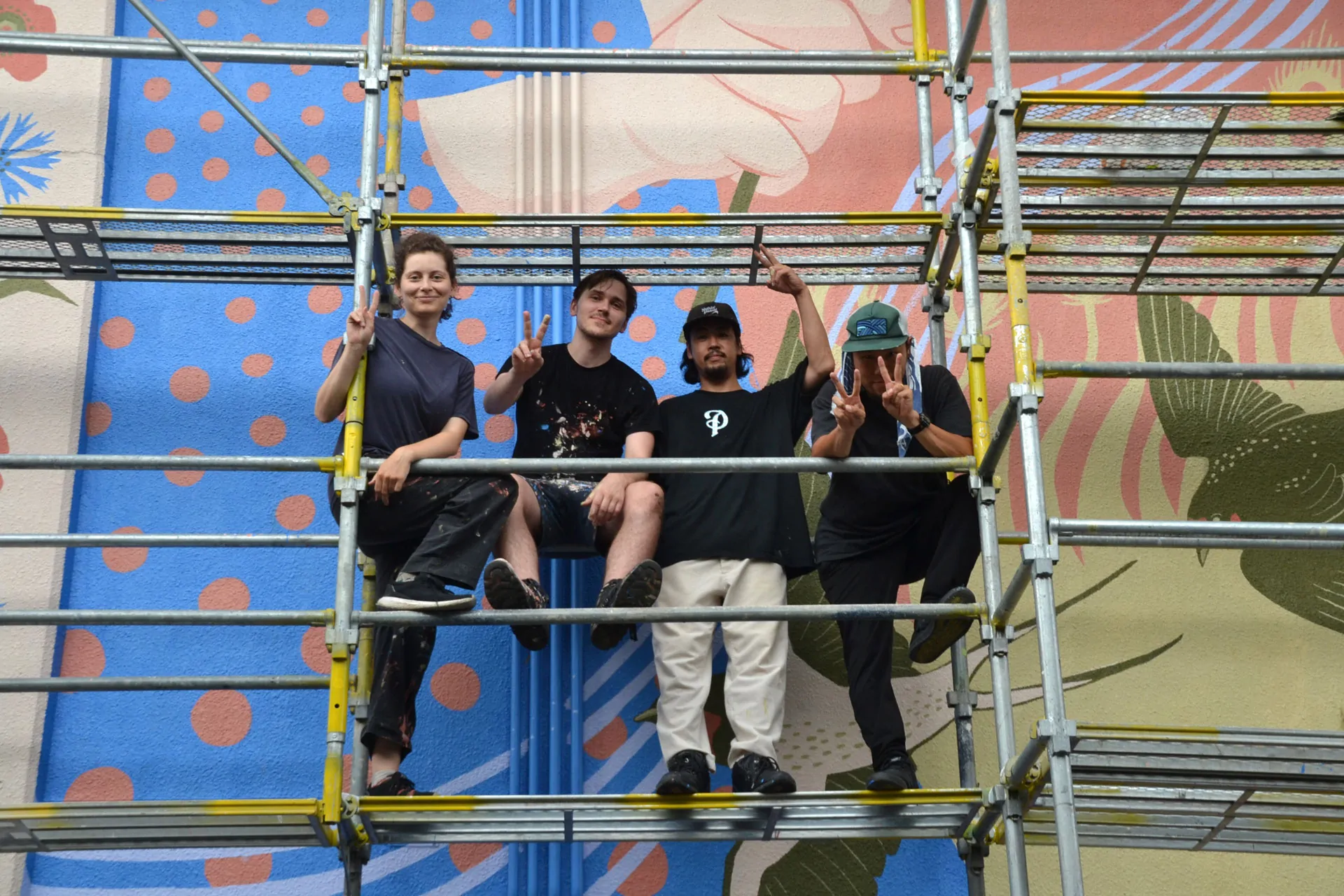Polish mural in Osaka

With the inauguration of the construction of the Poland Pavilion for the upcoming World Expo, a special mural designed by Polish artist Aleksandra Czudżak has been completed. The theme of the mural is the slogan of the Poland Pavilion, “Heritage that drives the future”.
The implementation of the project exemplifies the creativity, innovation and passion for artistic expression of Poles, which will also be presented during Expo: in the Poland Pavilion and at numerous cultural events.
Unlike in Poland, murals are not as popular in Japan and are still a niche art form, although this is slowly changing. The creation of the Polish mural was supported by the Wall Share inc. team, which promotes street art and is active in the Konohana district, acquiring the walls of buildings and inviting artists from around the world to carry out original projects.
Konohana is Osaka’s bustling port district, where more and more murals are being created every year. It is located near Yumeshima Island – the site of the World Expo 2025 Osaka, Kansai, already to be held next year. The Polish mural measures 8 meters by 10 meters, and can be easily spotted from both street level and the Hanshin Namba railroad line, the exact location is 2 Chome-18-8 Asahi, Konohana Ward.
Creative process
The author of the mural project is Aleksandra Czudżak, a graduate of the Academy of Art and Design in Wrocław, who has so far created many large-format murals, posters, illustrations for books and magazines. The artist relies mainly on motifs of nature, animals, Polish folklore, and her works are full of symbolism and hidden meanings.
“I am very interested in folk art, it was a kind of starting point for me. During the design process, many concepts were created, where I was inspired by cut-outs, folk costumes or Polish legends. The second great inspiration was our Polish nature. The final design of the mural includes elements that I associate with the Polish summer. Cornflowers, poppies, golden fields and swallows, says Aleksandra Czudżak.
A Polish mural in Osaka shows a young girl holding a windmill in her hand. The toy resembles the shape of the Poland Pavilion visible from above. The main figure’s breath stream is arranged into a stave that sets the windmill in motion, which is meant to emphasize how music is an important part of Polish culture. The design is meant to evoke positive childhood memories, while also showing what kind of experience awaits visitors at the Poland Pavilion. An important graphic element of the mural is also the slogan of Poland’s participation in Expo 2025 – “Poland. Heritage that drives the future”.
“I would like for the residents of Osaka, my mural to be an intriguing point on the map of the Konohana district. I also want it to motivate people to expand their knowledge of Polish culture”, adds the artist.
Murals in Poland
Murals in Poland are very popular and are an important part of the urban landscape. The streets of many cities, such as Warsaw, Łódź, Gdańsk, Wrocław and Katowice, have become real art galleries.
Contemporary murals often refer to history and tradition, combining elements of local culture with modern style. Murals in Poland are very diverse in terms of subject matter: you can find realistic portraits, abstract compositions, as well as works of social character. Many of them are created with the support of local authorities, NGOs, as well as during street art festivals, which attract artists from all over the world.
For fans of street art, and more, cities prepare so-called “mural trails”, which are special tourist routes that lead through places with significant and interesting murals. They are a great way to get to know a place from a different perspective and are not only a tourist attraction, but also a form of education and promotion of local culture and art.
Aleksandra Czudżak
Artist, illustrator and graphic designer. Graduate of the Eugeniusz Geppert Academy of Art and Design in Wrocław. Her diploma work “Dog” was shown at the exhibition of the best Polish design diplomas in 2018. She specializes in illustration, drawing and printmaking (especially intaglio techniques). Her work explores themes of femininity, archetypes, nature, folk tales and myths. She is the author of book illustrations, cover illustrations, poster illustrations and music album designs, collaborating with foreign publishing houses.
Her works have been shown in many group and individual exhibitions. She co-authored the publication “How to Name a Dog?” (Wolno Publishing House, 2024), which is her book debut. She has also recently prepared illustrations for the new edition of the lexicon “Highland magic. The Magic of the Podtatrze and Western Beskids,” which was published by the Tatra National Park. She is the author of murals in, among others, the Wrocław and Łódź Zoological Gardens.

Artist about herself:
I grew up in a kind of seclusion, in the woods on a goat farm. Maybe that’s why I’ve been fascinated by animals, nature and fairy tales since childhood. Creating for me is an intuitive process, in which I very often leave myself wide room for improvisation. In my works I explore themes of archetype, myth, femininity. I am interested in local legends, folklore and beliefs, and how they shape the world around us. Symbolic and personal art is important to me. I create self-portraits, images of animals and hybrids. With their help, I explore the contradictions and all shades of the human psyche.



